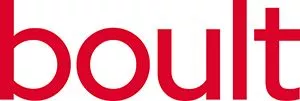It is a fact of life these days that a company needs to hold solid intellectual property (IP) rights in order to attract investment. Most company chiefs appreciate the importance of IP to their business and the need to take action to protect it. However they can be baffled by the complexities. There are plenty of pitfalls for the unwary, so it is essential to take sound professional advice.
It is a common misconception that the holding of an intellectual property right gives the holder the right to commercially exploit the property owned. In fact there are other quite separate legal authorizations which may be needed, for example, a license for a gun or a marketing authorization for a drug. However, what the holder of the right can do, is assert it to stop others commercially exploiting the IP right without permission and of course, as a property right, IP can be bought, sold (assigned) or licensed as a useful source of revenue.
Another feature of IP which must be appreciated is that it is territorial. Thus, a patent obtained through the UK Patent Office can only be enforced against infringers in the UK. The patent holder will be powerless to prevent others commercially exploiting the same invention abroad. In the modern world this local protection is rarely sufficient, so it is necessary to extend the IP in foreign territories. Truly global protection is not really possible. Not only would the cost of obtaining it be prohibitive, but such rights are not necessarily available or enforceable everywhere. Nevertheless, the current possibilities for territorial extension are sufficiently large that small or medium-sized companies on a limited budget face some tough choices about seeking foreign rights. Generally protection is sought where there are the largest potential markets for the product which the IP covers (for example the EU, USA, Japan) and/or where the principal competitors are located or likely to be located.
Ownership is another area where companies often trip up. Applications for registered rights, i.e patents, designs, trade marks, should be made in the name of the party that owns it. Under UK law, this will be the inventor or designer themselves or, where they are employed in an inventive or creative capacity, it might be the employer. It is most important for businesses and organizations to be careful about ownership where there are people working with the organization for whom there is not a strict employer/employee relationship, such as consultants or contract workers. An agreement should always be entered into with such individuals determining the ownership of any IP rights arising from a particular project, preferably before they have arisen. Similarly, arrangements need to be made when entering into joint ventures or collaborations in relation to who will own the IP generated by the joint effort. The importance of this cannot be over-emphasized. Big deals and even company floatations have faltered where the parties involved did not actually own the IP they believed they did.
The length of time it takes to secure a registered IP right depends on it’s nature. For example, a time scale of one to two years would be average to register a trade mark or design whereas patents usually take a lot longer to be granted following an initial application. Obtaining a patent to cover Europe, for example, could take as long as five or six years. Similar time scales will be experienced in other territories, although faster progress can often be made in the United States and in the UK.
Protecting IP is expensive, especially in high-tech areas like biotechnology or electronics. Complex technical specifications, which also serve as legal documents, have to be prepared by a patent attorney qualified in the relevant technical field. For an initial UK application bills of between £2000 to about £8000 might be expected. Further costs arise as the application is advanced into foreign territories which can be substantially more than the initial filing, depending on the choice of territories.
Therefore it is important that, are far as possible, IP expenses are coordinated with the business plan so that funds are available at the appropriate time.
Enforcing your IP against an infringer is also an expensive business. Action must generally be taken through the courts of the territory where the infringement is taking place. The time taken for the action to be brought to completion, including any appeals, varies enormously. The huge cost of civil litigation and the delays involved mean it is not be undertaken lightly.
Most businesses recognize that IP is the rock on which they are founded and that adequate protection is essential. To avoid the pitfalls, advice from specialist patent or trade mark attorneys should always be sought.
© 2003. Boult Wade Tennant
This article appeared in the March 2003 issue of Mergers & Acquisitions magazine.

